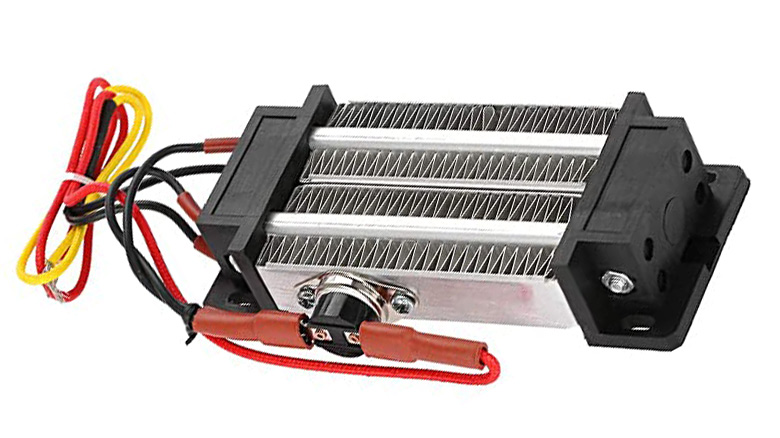Wiring nightmares? How electrician insurance can save your business

Being a sparky is a demanding gig. You’re dealing with high stakes every single day, managing complex wiring, ensuring compliance with stringent safety standards, and keeping homes and businesses humming. When the job is done right, the feeling of satisfaction is immense. But what happens when things go wrong? Even the most experienced tradie knows that accidents, unexpected faults, and even simple miscommunications are just part of the game.
A single mistake on a complex commercial fit-out or a fault that leads to a house fire could result in a financial crisis that shutters your business overnight. This isn’t about scaremongering; it’s about realising the inherent risks of working with electricity. That’s why securing comprehensive electrician insurance isn’t just a regulatory requirement or a nice-to-have; it’s the non-negotiable foundation upon which every reliable electrical business must be built. It’s the ultimate defence mechanism, allowing you to focus on the work without constantly worrying about the catastrophic ‘what ifs’.
In this guide, we’ll delve into why specialised cover is crucial for electrical contractors, what essential policies you need to consider, and how the right protection allows you to operate confidently, whether you’re wiring a new housing estate or simply fixing a faulty switchboard.
Why every sparky needs specialised cover
Electricians face a unique blend of risks that differ significantly from other trades. While a carpenter might face liability if a deck collapses, an electrician’s potential liability involves fire, electrocution, and damage to highly valuable electronic equipment. The inherent dangers of working with live circuits mean that the consequences of errors are often severe and expensive to rectify.
Consider the professional environment: you are often working under tight deadlines, alongside other tradies, and navigating complex local council regulations. The pressure to deliver high-quality work quickly is immense, which only increases the risk of oversight. Without adequate protection, you are personally liable for damages, legal fees, and compensation claims, which can easily run into the hundreds of thousands, if not millions, of dollars.
The hidden dangers of electrical work
The majority of claims against electricians stem from two core areas: physical damage to property and injury to third parties. These are not just minor inconveniences; they are major financial threats.
- Fire Damage: A faulty installation, a loose connection, or incorrect wiring can lead to a devastating electrical fire. If this happens in a client’s home or commercial premises, you are responsible for the rebuild costs, the loss of income for a business, and the associated clean-up.
- Electrocution and Injury: Working on site carries the risk of injury to yourself, your apprentices, or even members of the public who might stray onto the job site. A public liability claim resulting from a severe injury can be financially crippling.
- Damage to Infrastructure: Imagine accidentally cutting through data cables or damaging expensive machinery during an installation or repair. The costs associated with replacing specialised equipment can be astronomical.
Furthermore, many larger clients, particularly commercial operators and government bodies, will not even consider engaging a contractor who cannot demonstrate that they hold adequate levels of professional electrician insurance. This cover acts as a professional qualification, demonstrating that you take your responsibilities seriously and have robust financial backing.
Navigating council regulations and compliance
Compliance is paramount in the electrical trade. Every piece of work must adhere to strict wiring rules and local building codes. Councils and governing bodies are increasingly rigorous in their enforcement, and penalties for non-compliance are steep. If a client discovers an issue years down the track, and it is attributed to your original workmanship, the burden of proof and rectification often falls squarely on your shoulders.
Holding the right professional indemnity cover, which is often a key component of robust reliable electrician insurance policies, helps manage this risk. It addresses financial loss suffered by a client due to alleged negligence, error, or omission in the professional advice or design work you provided. This is particularly relevant for those involved in planning, certification, or suggesting energy efficiency upgrades where the financial impact of poor advice can be substantial.
Decoding the essential components of electrician insurance
When seeking appropriate cover, it’s important to understand that no single policy covers every risk. A comprehensive suite of policies is usually required to fully protect your business from the variety of threats faced daily. For most sparkies, this means combining Public Liability with several other key protections.
Public liability: The bedrock of your defence
Public Liability Insurance is arguably the most fundamental component of any specialised cover for electricians. It protects you against claims made by third parties (such as clients, suppliers, or the general public) for injury or property damage caused by your business activities.
Given the nature of electrical work, the minimum $5 million or $10 million cover is often required by contracts, but many established contractors choose to optimise their protection by securing higher limits. Why? Because the cost of rebuilding a large commercial property after a fire, or compensating for a severe, life-altering injury, can quickly exhaust standard policy limits.
This policy usually covers:
- Compensation payments to the injured party or property owner.
- Legal and defence costs associated with managing the claim, even if the claim is ultimately dismissed.
- Medical expenses for non-employees injured due to your operations.
If you employ staff, you must also consider Workers’ Compensation, which is mandatory and handles injuries sustained by your employees while on the job.
Professional indemnity: When advice goes wrong
While Public Liability deals with physical damage, Professional Indemnity (PI) steps in when the damage is purely financial, resulting from faulty advice or design work. For many electricians, particularly those who consult on complex systems, energy solutions, or smart home integrations, PI is essential.
Imagine advising a factory owner on an energy management system that, once installed, fails to deliver the promised cost savings, leading to a major financial loss for the factory. Or perhaps you incorrectly specify a component in a design programme, resulting in system failure. PI cover provides the financial backing to defend against these claims and pay out if you are found negligent.
Protecting your gear: Tools of trade cover
Your tools are your livelihood. From specialised testing equipment and metres to power tools and hand tools, the cumulative value of a professional electrician’s kit can easily exceed tens of thousands of dollars. Losing this gear, whether through theft from a job site or damage during transit, can halt your operations immediately.
Tools of Trade insurance provides cover for the replacement or repair of your essential equipment. Moreover, if your livelihood depends on your vehicle, especially a high-spec ute fitted out with custom storage, consider adding comprehensive commercial vehicle insurance. This ensures that if your mobile workshop is involved in an accident or stolen, you can get back on the road and back to work as quickly as possible.
Beyond these core policies, many electrical contractors also benefit from considering broader general trades insurance cover, which can bundle protection for business assets, portable equipment, and potential business interruption into one cohesive package.
Real-life scenarios: When insurance pays the cheque
It’s easy to view insurance as an expense until you realise its true value when disaster strikes. Here are a few common scenarios illustrating how a robust electrician insurance policy saves the day:
Scenario 1: The faulty connection and the fire
A small electrical firm completed the fit-out for a new café. Six months later, a faulty connection in the wall cavity caused a fire that destroyed the café’s kitchen and damaged the neighbouring tenancy. The café owner sued the electrical firm for the cost of the structural damage, replacement of expensive commercial equipment, and lost income during the six months they were closed for repairs.
Insurance Intervention: The firm’s Public Liability Insurance covered the multi-million dollar claim, including the hefty legal defence costs. Without it, the business owners would have faced personal bankruptcy trying to settle the damages.
Scenario 2: Design error in a solar system
An electrician advised a homeowner on installing a complex solar battery storage system, incorrectly calculating the load requirements. The system repeatedly overloaded and eventually failed, requiring complete replacement and causing damage to the home’s main switchboard. The homeowner claimed negligence and sought compensation for the replacement costs and the financial loss from the failed investment.
Insurance Intervention: Professional Indemnity cover stepped in to handle the claim, covering the cost of replacing the faulty system and managing the legal dispute over the professional advice provided.
Scenario 3: Theft from the ute
An electrician parked their ute overnight in a secure yard, only to find the next morning that thieves had broken in and stolen their high-end thermal imaging camera, testing equipment, and several expensive cordless tools. Total replacement cost was over $15,000.
Insurance Intervention: Tools of Trade cover paid out the replacement value of the stolen equipment, minus the excess, allowing the electrician to purchase new gear immediately and minimise downtime.
Choosing the right policy: What to look for
Selecting the right comprehensive electrician insurance protection requires careful consideration of your specific business profile. Are you a sole trader focusing on domestic repairs, or do you run a large company specialising in industrial installations?
Assessing risk exposure
Your risk level is directly tied to the type of work you undertake. Industrial and commercial installations often carry higher liability limits than residential work due to the complexity and value of the properties involved. When assessing policies, look closely at the exclusions.
- Does the policy cover “hot work” or fire welding if that is part of your service offering?
- Are sub-contractors or apprentices covered under your Public Liability policy?
- Does the policy include ‘faulty workmanship’ cover, which is critical for rectifying errors in your own work?
The importance of ongoing support
Insurance is not a set-and-forget purchase. As your business grows, takes on larger projects, or diversifies into new areas (like data cabling or renewable energy), your risk profile changes. You need a broker or provider who understands the nuances of the electrical trade and can help you adjust your cover proactively.
Furthermore, look for a provider that offers an efficient claims process. When you need to rely on your insurance, the last thing you want is a lengthy, complicated bureaucratic process. A specialist provider will understand the terminology and urgency associated with electrical claims, speeding up the resolution and allowing you to return to your core business.
In a trade where precision and safety are paramount, having the financial backstop of robust electrician insurance allows you to tender for large contracts and operate with complete peace of mind. Investing in high-quality cover is simply investing in the longevity and security of your business.
Frequently asked questions about electrician insurance
What is the difference between public liability and professional indemnity for electricians?
Public Liability covers claims for injury or property damage caused by your operations (e.g., you start a fire or a client trips over your tools). Professional Indemnity covers financial losses suffered by a client due to negligent professional advice, design errors, or incorrect specifications provided by you.
How much public liability cover do I actually need?
While many state regulations or industry bodies mandate a minimum of $5 million, most professional contractors choose $10 million or $20 million. This higher level is often required to secure work on commercial or government contracts, and it provides a far greater financial defence against catastrophic claims like major structural fire damage.
Does my electrician insurance cover faulty workmanship?
Standard Public Liability insurance generally excludes the cost of rectifying your own faulty workmanship (i.e., fixing a poorly installed wire). However, it will cover the subsequent damage caused by that faulty work (e.g., the fire that results from the poor wiring). Some policies offer specific extensions or endorsements to cover the costs of rectifying the faulty work itself, so it’s crucial to discuss this specific requirement with your insurer.
Are my apprentices or sub-contractors covered under my policy?
If you have employees (including apprentices), they must be covered by mandatory Workers’ Compensation insurance. For Public Liability, your employees are typically covered for claims arising from their work on your behalf. If you use sub-contractors, they usually need to hold their own, independent Public Liability cover, though your policy may offer contingent liability protection in specific circumstances.
If my tools are stolen from my locked van, will the insurance pay out?
Yes, provided you have Tools of Trade cover. However, policies usually have strict requirements regarding security. You must demonstrate that the van was securely locked, and sometimes, tools must be stored in a secure compartment or bolted down. Always check the specific security requirements outlined in your policy documentation to ensure any claim is valid.
Securing the right electrician insurance means more than just ticking a compliance box; it means safeguarding your future. Don’t leave your hard work vulnerable to unforeseen risks. Talk to a specialist today to ensure your cover aligns perfectly with the demands of your electrical business.




